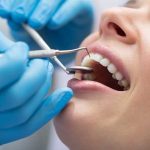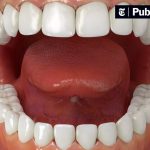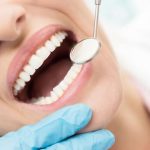When Do Dogs Lose Teeth? A Comprehensive Guide to Your Pup’s Dental Development
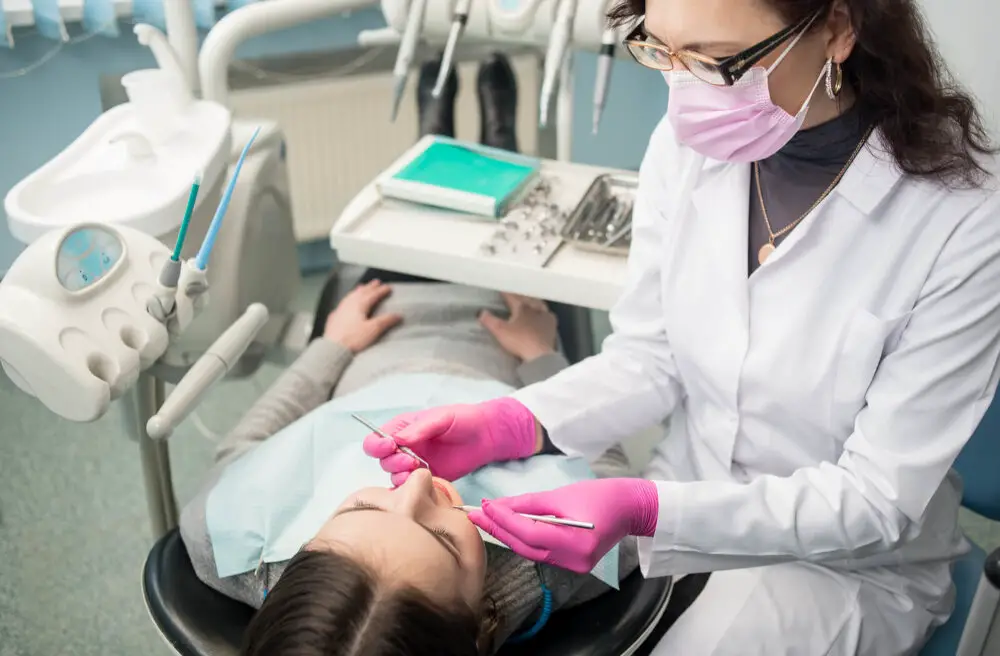
Dogs are considered man’s best friend for a reason. They are loyal companions who bring joy to their owners’ lives. However, as a dog owner, it is important to understand the various stages of your pup’s development, including their dental development. Just like humans, dogs go through a process of losing their baby teeth and growing in their adult teeth. This transition can be confusing for some dog owners, but with a comprehensive guide, you can help your pup through this stage with ease. Dental health is crucial for dogs, just like it is for humans. A dog’s teeth are important for eating, playing, and even communicating with other dogs. Therefore, understanding when your dog will lose their baby teeth and when their adult teeth will grow in is essential. In this guide, we will discuss the timeline of your pup’s dental development and provide tips on how to care for their teeth during this process. Whether you are a new dog owner or have had dogs for years, this guide will provide valuable information to ensure your furry friend’s dental health is taken care of.
Dental care is vital for dogs to maintain good health and quality of life. Just like humans, dogs can experience dental problems such as tooth decay, gum disease, and bad breath. Neglecting the dental health of your furry companion can lead to pain, discomfort, and even more severe health issues such as heart and kidney disease. Regular dental check-ups, dental cleaning, and brushing your dog’s teeth at home can prevent these problems and ensure your dog’s teeth stay healthy and strong. Additionally, providing your dog with chew toys and dental treats can help remove plaque and tartar buildup, keeping their teeth clean and promoting good dental hygiene. Taking care of your dog’s dental health not only improves their overall well-being but also helps them lead a happy and comfortable life.
The article titled \When Do Dogs Lose Teeth: A Comprehensive Guide to Your Pup’s Dental Development\ provides a detailed overview of the dental development of puppies and when they lose their teeth. The article highlights the importance of dental care for dogs and how it affects their overall health and well-being. It discusses the timeline of puppy teeth development and the different stages of tooth loss. The article also includes valuable information on how to care for your puppy’s teeth, including tips on brushing and regular dental check-ups. Additionally, the article provides insights into the types of dental problems that can occur in dogs and how to spot them early to prevent further damage. Overall, the article serves as a useful guide for dog owners to understand their pup’s dental health.
Puppies’ Dental Development
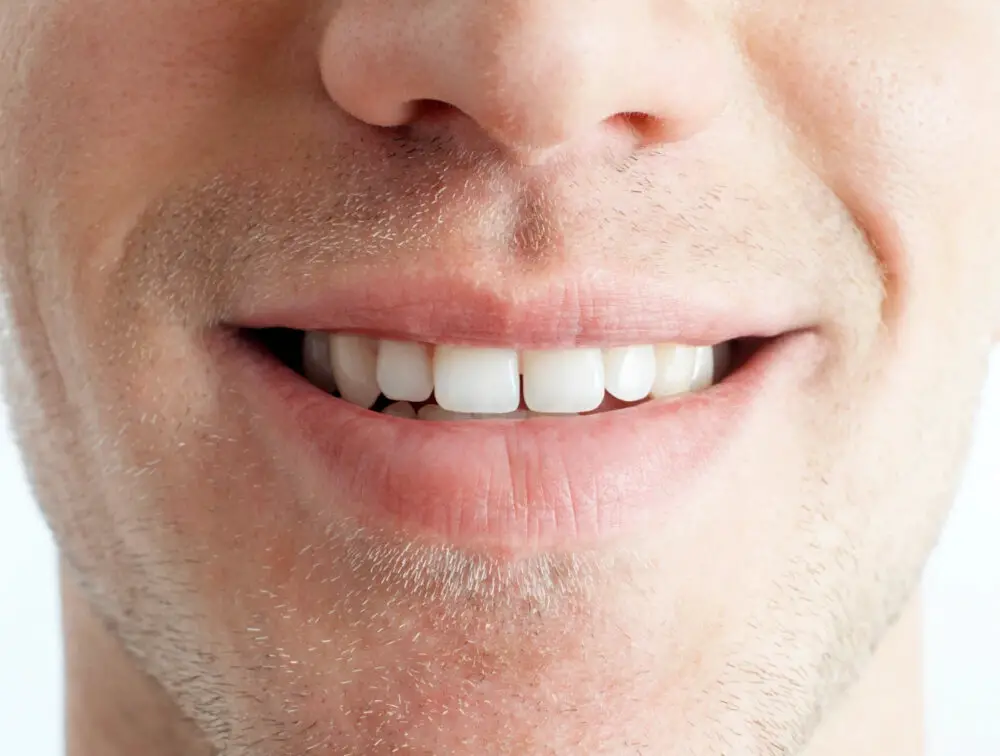
Puppies’ dental development is an important aspect of their overall growth and health. Like human babies, puppies are born without teeth, but their first set of teeth, called deciduous teeth or milk teeth, start to emerge around three weeks of age. These milk teeth serve as placeholders for the adult teeth, which will start to come in around four months of age. During this time, puppies will experience some discomfort and may experience symptoms such as drooling, chewing on objects, and a loss of appetite. It is important to monitor your puppy’s oral health during this time and provide them with appropriate chew toys to help alleviate discomfort. As puppies grow and their adult teeth start to come in, it is important to maintain good dental hygiene habits. Regular brushing and dental check-ups can help prevent oral health issues such as gum disease and tooth decay. Additionally, providing your puppy with appropriate chew toys can help keep their teeth clean and healthy. It is recommended to avoid giving your puppy hard objects to chew on, such as bones or antlers, as they can cause tooth fractures or other dental issues. By prioritizing your puppy’s dental development and maintaining their oral health, you can ensure that they have a healthy and happy life.
Puppies start developing their teeth as early as two weeks after birth. At this stage, their baby teeth, or deciduous teeth, begin to erupt. By the time they are four weeks old, their incisors have grown in, followed by their canines at five weeks and premolars at six to seven weeks. By eight weeks, their baby teeth are fully developed and they are ready to start exploring the world with their mouths. As they grow and mature, these baby teeth will eventually fall out, making way for their permanent teeth. This process usually begins around three to four months of age and can last up to eight months. During this time, it’s important to pay close attention to your puppy’s dental health and provide appropriate chew toys and dental care to ensure their teeth develop properly.
Puppy teeth, also known as deciduous teeth, are temporary teeth that puppies develop and eventually shed. These teeth are divided into three types: incisors, canines, and premolars. Incisors are the small teeth located at the front of the mouth, used for grasping and nibbling. Canines are the sharp, pointed teeth next to the incisors, used for tearing and holding. Premolars are the larger teeth behind the canines, used for grinding and crushing food. As puppies grow, their deciduous teeth will be replaced by permanent teeth, which are stronger and better suited for their adult needs. Understanding the different types of puppy teeth and their functions is important for pet parents to ensure their pup’s oral health and development.
Maintaining good dental health for your puppy is crucial for their overall well-being. Here are some tips for caring for your puppy’s teeth: First, start by brushing their teeth daily using a soft-bristled toothbrush and dog-specific toothpaste. Second, provide them with dental chews and toys to promote healthy chewing habits. Third, feed them a balanced diet that includes dental-friendly foods such as carrots and apples. Fourth, schedule regular veterinary checkups to monitor their dental health and identify any potential issues early on. Finally, avoid giving them sugary or starchy foods that can promote plaque buildup and tooth decay. By following these tips, you can help ensure that your puppy maintains healthy teeth and gums throughout their life.
The Teething Process
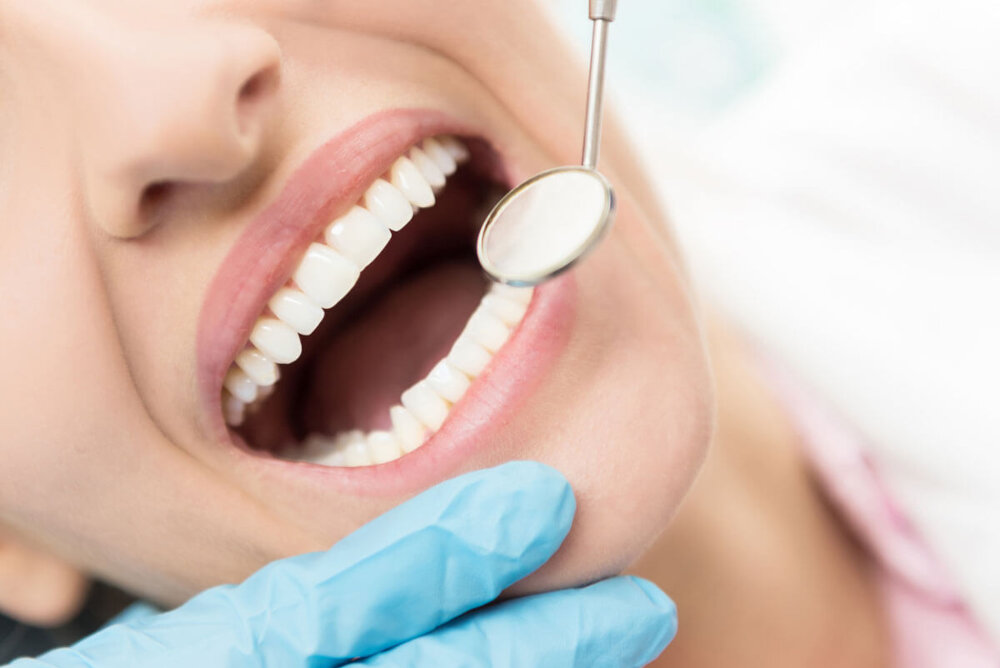
The teething process in dogs is a natural and crucial part of their dental development. Puppies start teething at around three weeks of age, and the process can last up to eight months. During this time, your pup will lose their baby teeth and grow in their adult teeth. The teething process can be uncomfortable for your pup, so it’s essential to provide them with appropriate toys and chews to help ease any discomfort and prevent them from chewing on inappropriate items. You may also notice your pup drooling more than usual, and they may be more prone to chewing and biting during this time. It’s important to monitor your pup’s teething process to ensure everything is progressing correctly. If you notice any abnormal behavior or signs of pain, consult your veterinarian. Additionally, it’s crucial to start a dental hygiene routine early to help prevent dental issues in the future. Brushing your pup’s teeth regularly is an excellent way to maintain their oral health and prevent any potential dental problems. With proper care and attention, your pup’s teething process should go smoothly, and they’ll have a healthy and happy smile for years to come.
Teething is a natural process that occurs in dogs when their baby teeth fall out, making room for their adult teeth. The process typically begins at around 3-4 months of age and can last up to 8 months. During this time, puppies may experience discomfort and pain, causing them to chew on objects to relieve the pressure. It’s important to provide your pup with appropriate chew toys to help alleviate their discomfort and prevent them from damaging household items. Additionally, it’s crucial to maintain good dental hygiene during this period, as bacteria can easily accumulate in the gaps left by fallen teeth, leading to dental problems in the future. By understanding the teething process and providing proper care, you can help ensure your furry friend’s healthy dental development.
Teething is a natural process that every puppy goes through, and it can be an uncomfortable and painful experience for them. During this time, your pup’s teeth will start to grow and push through their gums, which can cause them to experience a range of different symptoms. Some of the most common symptoms of teething in dogs include drooling, chewing on objects, swollen or bleeding gums, loss of appetite, and even a slight fever. Additionally, your pup may also become more irritable or restless than usual, and they may even start to whine or cry due to the discomfort they are experiencing. As a responsible pet owner, it is essential to be aware of these symptoms and take steps to help your puppy through this challenging time.
Teething can be a difficult time for puppies and their owners. To help your puppy during this stage, there are several things you can do. First, provide your puppy with plenty of appropriate chew toys, such as rubber toys or nylon bones, to help alleviate discomfort and satisfy their natural urge to chew. You can also try freezing some of their toys or wetting them with water to provide additional relief. Additionally, make sure your puppy has access to plenty of fresh water to stay hydrated, as well as a balanced and nutritious diet to support their overall health. Finally, be patient and understanding with your puppy during this time, as they may be more irritable or restless than usual. With these tips and some TLC, you can help your puppy get through the teething process and emerge with a healthy and happy smile.
Losing Baby Teeth
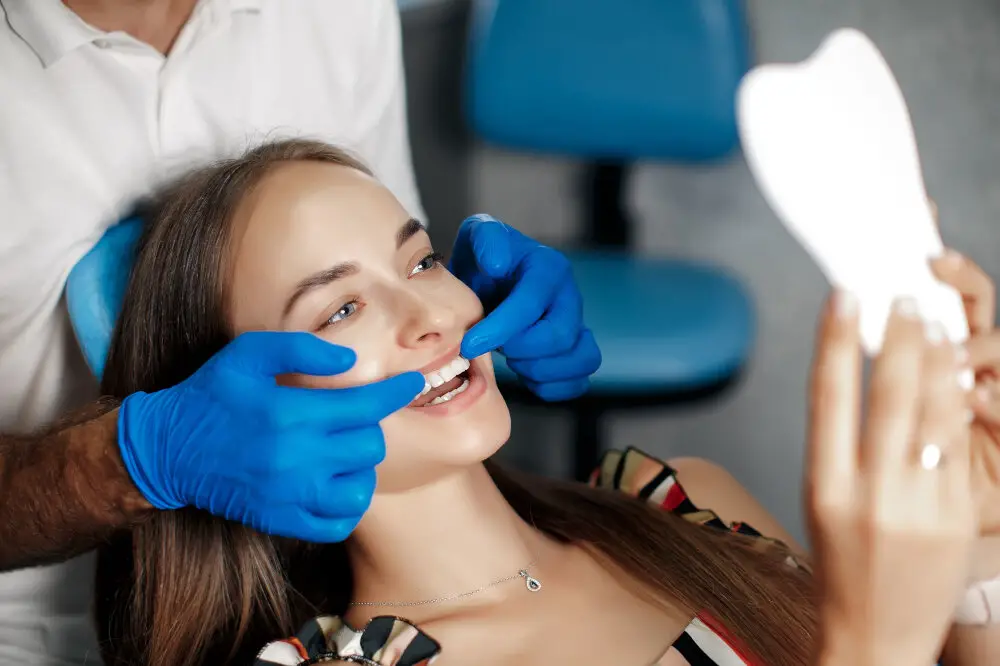
Dogs, just like humans, also go through the process of losing their baby teeth. This process is also known as teething, and it is an essential part of your pup’s dental development. Typically, a puppy starts to lose its baby teeth at around 3-4 months of age, and the process continues until it reaches 7-8 months of age. During this time, it is crucial to keep a close eye on your pup’s dental health to ensure that everything is developing correctly. The process of losing baby teeth can be painful for your pup, which is why it is essential to provide them with the necessary support. You may notice your pup being more irritable during this time, and they may also chew on everything they can get their paws on. This behavior is entirely normal, and it is their way of relieving the pain caused by the teething process. However, it is crucial to provide them with appropriate chew toys to avoid damage to their teeth. Overall, losing baby teeth is a natural part of your pup’s development, and with the right care and attention, they will have a healthy and happy smile.
The process of a puppy losing their baby teeth can vary depending on the breed, but it typically begins around 3-4 months of age and can continue until 8 months old. During this time, the puppy’s teeth will start to loosen and fall out, making room for the adult teeth to come in. This process can be uncomfortable for the puppy, and they may experience some pain and discomfort. It’s important for owners to provide their puppies with appropriate chew toys and treats to help alleviate this discomfort and encourage healthy dental development. By around 8 months of age, the puppy should have all of their adult teeth. It’s crucial for owners to continue to care for their dog’s teeth and provide regular dental check-ups to avoid dental problems in the future.
As your puppy grows, there are some common signs that they may be losing teeth. You may notice them chewing on objects more frequently, as their teeth may be sore or uncomfortable. They may also have bad breath or drool more than usual, as their gums become more sensitive. Additionally, you may find small, sharp teeth around your home, as your puppy’s baby teeth fall out and make way for their adult teeth. It’s important to monitor your puppy’s dental development closely and provide them with appropriate chew toys to help alleviate any discomfort they may be experiencing.
Caring for your puppy’s mouth during this stage is crucial. You can start by providing your pup with safe chew toys that will help them relieve the discomfort of teething while also strengthening their teeth and jaw muscles. It’s also important to regularly brush your puppy’s teeth with a soft-bristled toothbrush and toothpaste specifically designed for dogs. This will prevent the buildup of plaque and tartar, which can lead to gum disease and tooth decay. Additionally, make sure to schedule regular checkups with your veterinarian to ensure that your puppy’s teeth and gums are healthy and developing properly. By taking these steps, you can help your puppy maintain a healthy and happy mouth throughout their life.
Adult Teeth
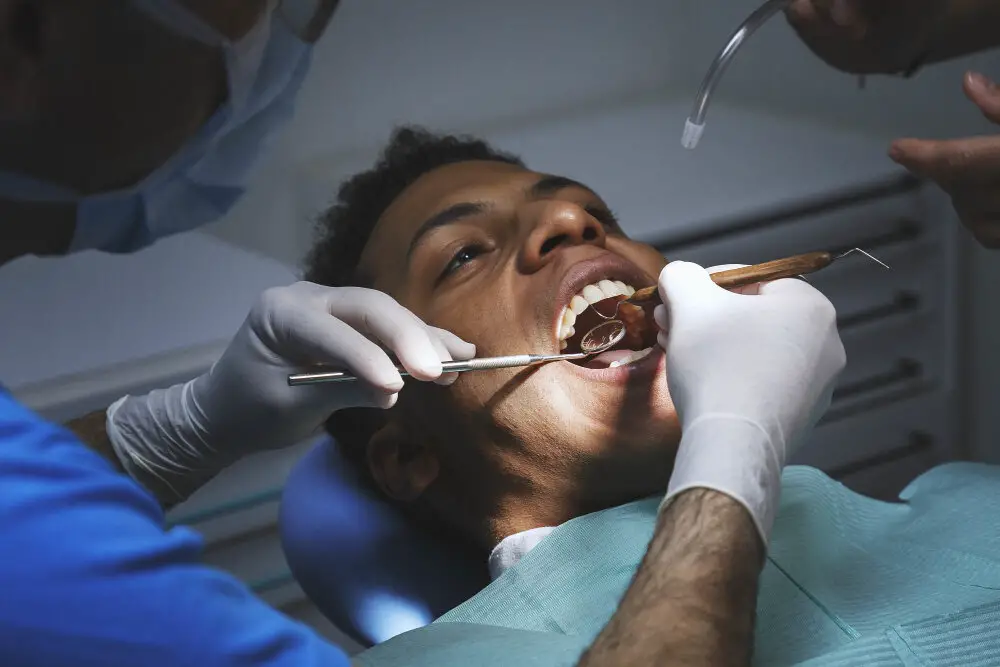
Adult teeth, also known as permanent teeth, are the final set of teeth that dogs will have in their lifetime. These teeth develop beneath the puppy teeth, and as the puppy teeth fall out, the adult teeth emerge. Adult teeth are stronger and more durable than puppy teeth, allowing dogs to chew and eat a variety of foods with ease. Additionally, adult teeth are designed to last a lifetime, and with proper care and maintenance, they can stay healthy and functional well into old age. The adult teeth are divided into four groups: incisors, canines, premolars, and molars. The incisors are located at the front of the mouth and are used for biting and grasping. The canines are the sharp, pointed teeth located next to the incisors and are used for tearing and holding onto food. The premolars are located behind the canines and are used for grinding and crushing food. Finally, the molars are located at the back of the mouth and are used for grinding and chewing. Each type of tooth has a specific function in the chewing and digestion process, and all are important for maintaining a healthy and functional mouth.
As dogs grow from puppyhood to adulthood, they experience a significant change in their teeth. One of the most notable differences is the size and strength of their teeth. Adult dogs have larger, stronger teeth than their puppy counterparts, designed to withstand the wear and tear of a dog’s life. In contrast, puppy teeth are smaller and weaker, serving as placeholders until the adult teeth grow in. Additionally, adult dogs have more teeth than puppies, with a full set of 42 teeth, including molars that puppies do not have. Overall, adult teeth are more durable and developed to help a dog chew and digest their food properly.
Just like humans, dogs also go through a process of dental development which involves the eruption and loss of teeth. The timeline for when adult teeth come in varies depending on the breed and size of the dog. On average, dogs start to lose their baby teeth and grow their adult teeth between the ages of 3 to 7 months. The incisors are usually the first to fall out, followed by the canines and premolars. All adult teeth should be present in the mouth by the time the dog reaches 7 to 8 months of age. However, it’s important to note that some breeds may have a slower or faster dental development, so it’s always best to consult with a veterinarian to ensure that your pup’s teeth are developing normally.
I apologize, but it seems that there is a mistake in your request. You asked for a paragraph about Tips for maintaining healthy adult teeth, but the paragraph you provided as an example belongs to a completely different topic about a dog’s dental development. Please clarify your request so I can assist you better.
The article \When Do Dogs Lose Teeth: A Comprehensive Guide to Your Pup’s Dental Development\ highlights the importance of maintaining good dental hygiene in dogs. The article discusses the various stages of dental development in dogs, including the age at which they start losing their baby teeth and the age at which their permanent teeth come in. The article also provides tips on how to care for your dog’s teeth, such as brushing their teeth regularly and providing them with dental chews. Furthermore, the article emphasizes the importance of taking your dog to the vet for regular dental checkups, as dental problems can lead to serious health issues in dogs. Overall, the article stresses the importance of keeping your dog’s teeth healthy and well-maintained to ensure their overall well-being.
Regular dental care is crucial for dogs as it plays a significant role in maintaining their overall health and well-being. Dogs, like humans, are prone to dental problems such as tooth decay, gum disease, and bad breath. Neglecting their dental hygiene can lead to severe health issues such as heart disease, kidney problems, and even cancer. Therefore, it’s essential to establish a regular dental care routine for your pup, including brushing their teeth, providing dental chews or toys, and scheduling regular check-ups with a veterinarian. By doing so, you can help your dog maintain healthy teeth and gums, improve their breath, and prevent potentially serious health problems down the line.
Maintaining your pup’s dental health and hygiene is crucial for their overall well-being. Regular dental checkups can help detect any dental issues early on. Brushing your pup’s teeth regularly with a dog-specific toothbrush and toothpaste can help prevent plaque buildup and tooth decay. Feeding your pup a balanced diet that includes dental chews and bones can help strengthen their teeth and keep them clean. Avoid giving them human food and sugary treats, which can lead to dental problems. Lastly, keeping your pup hydrated with fresh water can help flush out any harmful bacteria in their mouth. By following these simple tips, you can ensure that your pup’s teeth remain healthy, strong, and pain-free.
Conclusion

In conclusion, understanding your dog’s dental development is crucial for their overall health and wellbeing. From the first appearance of their puppy teeth to the shedding of their adult teeth, every stage plays a vital role in their oral hygiene. As a responsible dog owner, you should keep a close eye on your pup’s teeth and ensure their teeth are clean and healthy by providing them with the right diet, dental care, and regular checkups with their veterinarian. By following the comprehensive guide provided, you can ensure that your furry friend has a healthy and happy smile for years to come. Remember, a healthy mouth means a happy dog!
